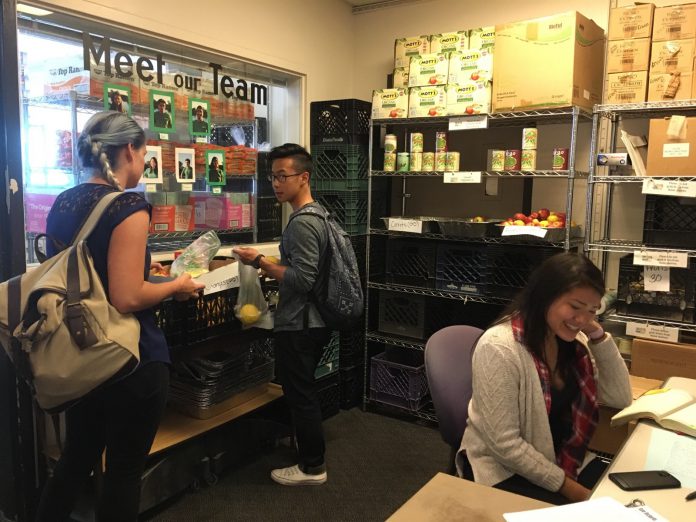
Madeleine Lee
Campus Beat Reporter
A report released by the University of California Global Food Initiative on Monday, July 11, concluded that 42 percent of UC students system-wide identify as food insecure. The study, funded by UC President Janet Napolitano as part of a larger $3.3 million initiative to improve food access and security for all UC students, revealed various stages of food insecurity for the students surveyed.
Out of 66,000 students invited to take part in the study’s survey, 8,932 participated. In it, 19 percent of students reported a “very low” food security, defined by the United States Department of Agriculture as a state in which one forgoes meals in order to afford other expenses. Another 23 percent reported “low” food security, defined by the USDA as a state in which an individual has little dietary variety.
The study’s findings come as no surprise to many UC Santa Barbara students.
Fourth year communication and Asian American studies double major Carrie Tran understood the struggle of food insecurities from an early age.
“I myself came from a very low income community, and my parents used food stamps and just having to deal with balancing bills and constantly make decisions between food and basic necessities was always something I had to deal with,” said Tran, an Associated Students Food Bank staff member who grew up in a struggling household in East Los Angeles.
The reality of Tran’s struggle still looms in the foreground of her everyday decisions. Financially independent from her parents, Tran admits that there have been times when she has, like others who report very low food insecurity, foregone food in order to cover textbook expenses.
From the information collected in the report, leaders have created a six pronged plan to improve areas ranging from food resource awareness campaigns to integrating food prep and storage spaces in future student housing.
Campus food security groups working with the GFI are trying to expand the already existing Swipe Out Hunger Program that allows students with campus meal plans to donate meals to struggling students.
Improvements to food pantries and banks on UC campuses, as well as increasing access and information on the CalFresh Program, California’s food stamp program, were also included on the list.
The program offers qualifying individuals a stipend of up to $189 a month. Tran admits that CalFresh “has lifted significant weight” off her shoulders when it comes to balancing her checkbook every month.
UCSB’s A.S. Food Bank, whose fee increase was just approved by students for the 2016-2017 school year, already helps hundreds of students a week, according to numbers compiled by coordinator Tuyen Nguyen.
Third year biopsychology major Carly Ice is a frequent visitor at the A.S. Food Bank, and relies heavily on its produce, grains and breakfast staples to stock her pantry every week.
“I don’t have a lot of money for groceries,” said Ice, who lives off a grocery budget of $20 a week. “The Food Bank is definitely a huge help.”
The system-wide GFI Food Access and Security Subcommittee, with representatives from all 10 UC’s, will continue its plans to improve such resources.










